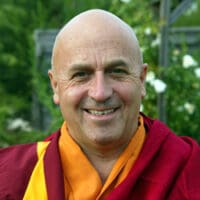Overview
This philosophical dialogue explores the concept of ‘destructive’ emotions, delving into when negative emotions transform into entities causing harm. Bridging Western and Buddhist perspectives, the discussion seeks to unearth implicit cultural disparities and areas of convergence in the foundational assumptions guiding our exploration. Serving as a counterpoint to scientific presentations, the Western perspective spans two traditions. Firstly, within Western moral philosophy, a historical concern with the destructive potential of emotions is evident. In traditions like those of St. Augustine and St. Ignatius, spiritual exercises aim at moral enhancement. In a later secular tradition, ethicists address this concern through ethical training rooted in rationality, democracy, and education. Secondly, the biological dimension of emotions is explored, drawing from fields like psychology, neuroscience, and ethology. While recent philosophical work has tackled aspects such as the rationality of emotions, little attention has been paid to their destructive potential.
Contrasting this, the Buddhist perspective approaches emotions from a phenomenological stance, emphasizing firsthand experience over biological underpinnings. The term ‘Klesha’ in Buddhism closely aligns with ‘destructive emotion,’ translated as ‘mental affliction.’ Kleshas, arising from ignorance, disturb the mind’s equilibrium. Delusion, considering personal identity as separate from others, is the primary affliction. While Buddhist psychology analyzes various mental afflictions, all stem from the ‘three poisons’ of delusion, craving, and hostility, the sources of personal misery and conflict. Remarkably, Buddhism posits that these afflictions are not intrinsic but eliminable obscurations, offering a path to lasting freedom or Nirvana. Thus, the Buddhist view of destructive emotions is contextualized within a broader psychological and philosophical framework.
- Dialogue 811 sessions
- March 20, 2000Dharamsala, Himachal Pradesh, India


